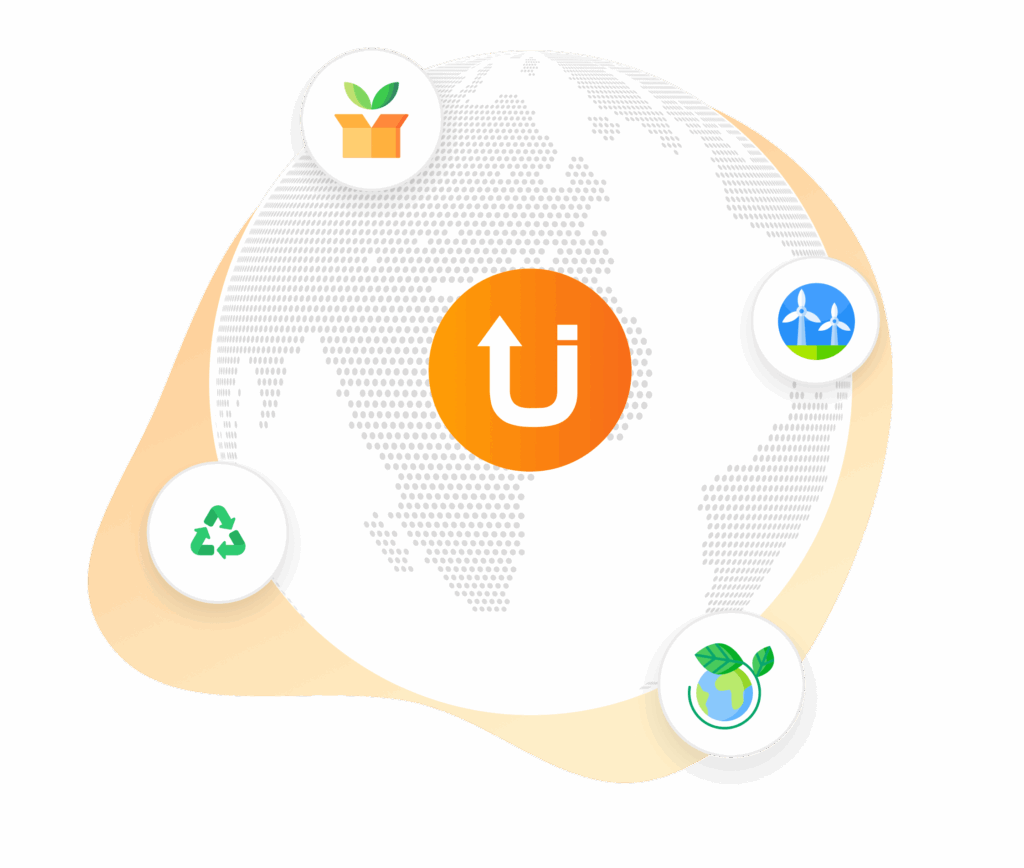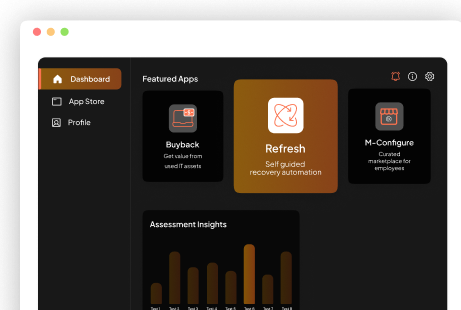Current as of 1 June 2025
Our Commitment to Sustainability
Unduit is committed to driving sustainable IT operations through responsible asset management, circular economy practices, and ethical partnerships. We’ve outlined our environmental policy, strategic goals, certifications, and ESG tools on this page to reflect our approach and help clients meet their sustainability objectives.

1. Introduction
At Unduit, we recognize that sustainable practices are crucial to achieving long-term business success, environmental stewardship, and a positive societal impact. As a global provider of IT asset lifecycle management, Unduit is committed to embedding sustainability into every aspect of our operations. This policy outlines our commitments, credentials, and strategic goals as we pursue responsible growth and innovation within the circular economy.
2. Scope and Applicability
This policy applies to all Unduit operations globally, including our employees, contractors, vendors, service providers, and downstream partners. It governs our environmental, social, and governance (ESG) standards and covers all service offerings, including asset recovery, refurbishment, resale, recycling, logistics, and reporting. Clients, partners, and stakeholders are also encouraged to align with these standards when engaging with Unduit.
3. Environmental Responsibility
3.1 Device Lifecycle Management
- Prioritize refurbishment and redeployment of devices before considering recycling.
- Promote circular economy models by maximizing the reuse potential of all assets.
- Extend product life by enabling secure, functional redeployment through testing, grading, and repackaging.
3.2 E-Waste Minimization
- Divert functional and repairable equipment from landfills.
- Ensure all end-of-life devices are processed by R2v3 or e-Stewards certified partners.
- Track every device via a serial-level chain of custody and maintain audit trails of processing and final disposition.
3.3 Carbon Emission Reductions
- Reduce Scope 3 emissions by optimizing shipment consolidation and hub-based logistics.
- Measure and report carbon offsets achieved through asset reuse and avoided production.
- Introduce carbon labeling on assessment reports to promote carbon-conscious decisions.
3.4 Responsible Materials and Waste Handling
- Partner with vendors using environmentally safe dismantling and disposal practices.
- Avoid the use of hazardous substances in asset handling and packaging.
- Implement digital documentation to reduce paper waste.
4. Social Responsibility
4.1 Workforce Development
- Provide training, upskilling, and career development programs in IT asset management and repair.
- Promote inclusive hiring and equitable opportunities across all levels of the organization.
Disclaimer of Liability
4.2 Community Impact
- Donate usable technology to non-profits and underserved communities.
- Engage in local initiatives that support education, digital literacy, and sustainability awareness.
4.3 Ethical Labor Practices
- Comply with all labor laws, including fair wages, working hours, and health and safety standards.
- Conduct periodic reviews to ensure no child labor or forced labor exists within the supply chain.
5. Governance and Transparency
5.1 Data Integrity and ESG Reporting
- Deliver real-time ESG dashboards to clients via our Environmental App.
- Generate third-party verifiable reports on carbon savings, e-waste reduction, and reuse rates.
5.2 Certifications and Compliance
| Credential | Description |
|---|---|
| R2v3 / e-Stewards | Downstream partners are certified and audited annually. |
| NIST 800-88 / DoD 5220.22-M | Data erasure standards strictly enforced across all processed devices. |
| ISO 14001-aligned operations | Environmental standards applied through logistics and partner network. |
| EPA Guidelines | ESG metrics based on United States Environmental Protection Agency benchmarks. |
6. Strategic Goals (2025–2027)
- Increase the overall device reuse rate to 85% across global programs.
- Offset 2 million pounds of CO₂ emissions annually through extended asset lifecycle.
- Expand deployment of AI-driven analytics to optimize logistics and minimize emissions.
- Deliver ESG scorecards and carbon impact labels to 100% of enterprise clients.
- Launch an internal Green Certification Program for operations and logistics personnel.
7. Customer Engagement & Digital Sustainability Tools
Clients and enterprise customers can access full sustainability metrics through:
- Environmental App: Dynamic reporting on carbon savings, reuse ratios, and landfill diversion.
- Manage App: Real-time inventory with status-level environmental tracking.
- Insights Center: Dashboards highlighting aggregate ESG performance, compliance, and trends.
- Audit Manager: Downloadable audit records, erasure logs, and compliance statements.
These tools ensure full transparency, enabling customers to meet their own sustainability and compliance goals.
8. Oversight and Policy Review
The Unduit Sustainability Policy is reviewed at least annually by the Legal, Compliance, and Operations teams, in consultation with downstream partners and relevant ESG advisors. Revisions may be made in response to:
- New or updated regulatory requirements
- Customer feedback and ESG reporting needs
- Emerging environmental or social risks
Interested in boosting your IT ROI and Security?
Talk to our experts and see how Unduit protects data and boosts ROI

Interested in boosting your IT ROI and Security?
Talk to our experts and see how Unduit protects data and boosts ROI
